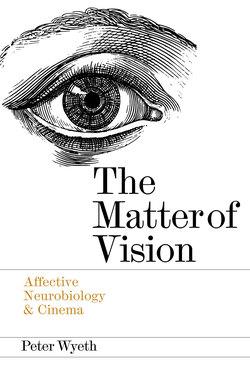Читать книгу The Matter of Vision - Peter Wyeth - Страница 17
На сайте Литреса книга снята с продажи.
The Long Shadow of Immanuel Kant
ОглавлениеThose two assertions are also symptoms of a philosophical approach that has proved ‘unreasonably ineffective’.39 In that regard there is an argument to be made that would be both unfashionable (at least in the humanities) and not uncontroversial. In the sciences, on the other hand, it would pass by largely without comment. There was a certain parting of the ways in philosophy that can be traced back to the eighteenth century, but with fundamental implications for contemporary debate both about philosophy and the vexed question of the relation between Art & Science, the Two Cultures debate so-named in the 1950s.
It all begins with Kant. Widely regarded as the greatest philosopher of the modern era, there is however an argument that he was also responsible for much of our present troubles. The two philosophers to whom Kant principally responded were Hume and Leibniz. He was exercised against Hume’s idea that we apprehend the world solely through our senses. His desire was to assert that ideas form part of that perception of the world and in the Categorical Imperative it would appear that he claimed a certain autonomy to reason to that end, claiming a truth for philosophy that was independent of but equal to the truths of science in the tradition established by Newton and carried on in philosophy in his era by Hume (who died before Kant’s response was published, although their lives overlapped). Kant felt he had achieved a Copernican Revolution in philosophy, distinguishing the world in our minds and an external world impossible for us to know directly. There are interesting parallels between that view and current neuroscience discussions. Neuroscientists agree that we have only a representation of the world in our brains, partly due to the limitations of Consciousness and partly because, despite the idea that the brain is the most complex object known to man, it would not be possible to know the world completely in its every moment. Kant concluded for his part that it was the case that reason apprehended the world independently of the world outside the mind and that world could not, in principle, be known.
It is this autonomy to reason, an ideological perspective in Kant, that creates the problem. If reason is autonomous then philosophy by extension has a truth independent of the criteria of science. Those truths are not rooted in ‘experience’, that is in the material world, and are thus – in philosophical terms – Idealist. Kant arguably thus founded the tradition of German Idealism, which could be seen as passing in various guises through Hegel, inverted by Marx to his brand of materialism, which in turn fed into the thinkers behind the beginnings of Film Theory in the 1960s. In these synoptic strokes the line of argument goes that Marx, through an inversion rather than wholehearted disconnection from Hegel, erected Castles not in the Air (as Schopenhauer put it), but in the sand of Economics. It could be said that in eschewing the real materialism of Evolution after Darwin, Marx’s brand of Hegelianism succeeded in creating another Idealism keen to take on the garb of materialism.
The continuities of German Idealism, however, took up slightly unlikely residence in Film Theory, via the thinkers behind it, in denying the materialism of science and substituting for it the false materialism inherited from Marx, in ‘scientific socialism’. Returning to Kant, his assertion of an autonomy for reason found an interesting contradiction in Damasio’s conclusion40 based on work with brain-damaged patients rather than the abstractions of philosophy. His formula makes Reason contingent upon Emotion or, to put it another way, Reason has no autonomy. It is Emotion that has autonomy.
If we are able to accept that point, then Kant’s wishes fall. Reason is not and cannot ever be autonomous. The historical echo is now with David Hume, in his famous assertion that Reason is and always should be under the control of the Passions. If you recall, it was partly Hume that Kant set out to deny.
The problem that leads back, in this sketch, to Kant, is that in the presentation to Reason of a licence to autonomy, Hegel’s Castles in the Air41 are echoed in the whole of French thought that lies behind Film Theory. That tradition is anti-visual42 while leaving a trail of idealisms often claiming to be materialist, but in reality nothing of the sort. Rejecting science out of hand, turning its back on the real materialism of evolution, let alone neurobiology, it is without the faintest thought of submission to the proper discipline of science. In science ideas must be testable, able to formulated in such a manner that experiments can be designed that will put the truth of those ideas to the rigours of laboratory conditions. No post-modernist relativism must ever be allowed to deny one jot of the achievements of real science. The notion that ideas must be testable is a universe away from the inheritance of German Idealism. A Lacan produces not Castles but labyrinths in the air, an unintended legacy of Kant that has permitted the creation of ‘a tumbling ground for whimsies’, as William James observed of Freud’s conception of the unconscious.
